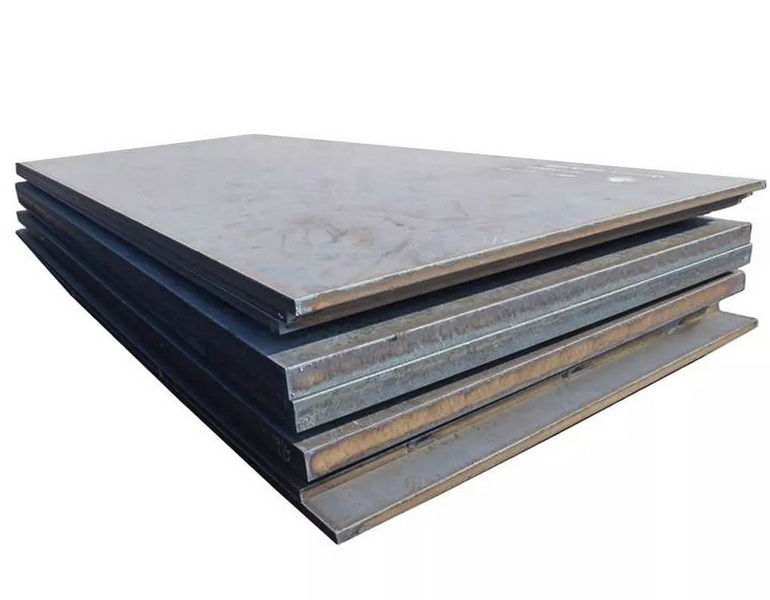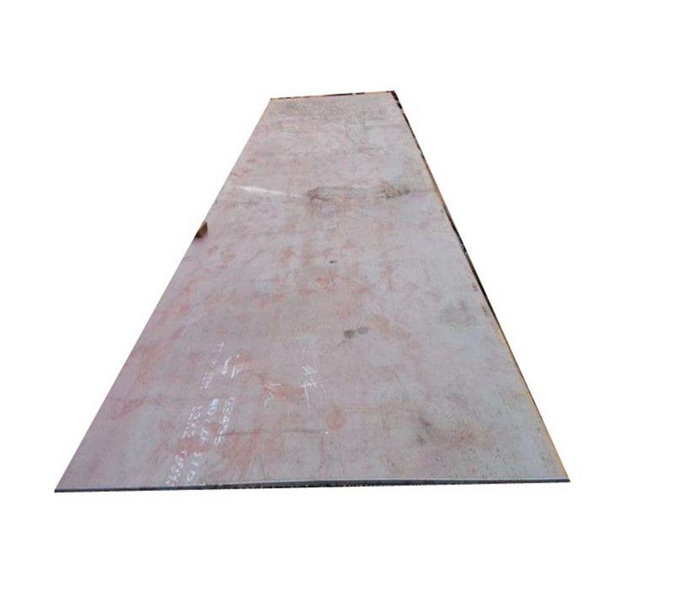Content Menu
● Understanding Chromium Carbide Steel Plates
>> Key Properties of Chromium Carbide Steel Plates
● Factors to Consider When Choosing Chromium Carbide Steel Plates
>> 1. Application Requirements
>> 2. Thickness of the Plate
>> 3. Overlay Thickness
>> 4. Welding and Fabrication
>> 5. Cost Considerations
● Practical Steps for Selecting the Right Plate
>> Step 1: Assess Your Needs
>> Step 2: Research Available Options
>> Step 3: Consult with Experts
>> Step 4: Request Samples
>> Step 5: Evaluate Cost vs. Performance
● Common Applications of Chromium Carbide Steel Plates
● Conclusion
● Frequently Asked Questions
>> 1. What is the primary benefit of using chromium carbide steel plates?
>> 2. How do I determine the right thickness for my chromium carbide plate?
>> 3. Can chromium carbide plates be welded?
>> 4. Are chromium carbide steel plates suitable for high-temperature applications?
>> 5. What industries commonly use chromium carbide steel plates?
When it comes to selecting materials for industrial applications, the choice of steel plate can significantly impact the performance and longevity of your project. Among the various options available, chromium carbide steel plates stand out due to their exceptional hardness and wear resistance. This article will guide you through the process of choosing the right chromium carbide steel plate for your specific needs, covering everything from understanding the material properties to practical considerations for selection.
Understanding Chromium Carbide Steel Plates
Chromium carbide steel plates are composite materials that combine a steel substrate with a layer of chromium carbide. This unique combination provides enhanced wear resistance, making these plates ideal for applications where abrasion and impact are common. The chromium carbide overlay is typically applied using a welding process, resulting in a hard, durable surface that can withstand harsh conditions.

Key Properties of Chromium Carbide Steel Plates
1. Hardness: Chromium carbide plates are known for their high hardness levels, often exceeding 60 HRC (Rockwell Hardness Scale). This hardness allows them to resist wear from abrasive materials, making them suitable for mining, construction, and other heavy-duty applications.
2. Wear Resistance: The primary advantage of chromium carbide steel plates is their ability to withstand wear and tear. They are particularly effective in environments where materials like sand, gravel, and other abrasives are present.
3. Impact Resistance: In addition to wear resistance, these plates can absorb impacts without cracking or breaking, which is crucial in applications involving heavy machinery and equipment.
4. Corrosion Resistance: While not entirely corrosion-proof, chromium carbide plates offer better resistance to corrosion compared to standard steel plates, especially when properly coated or treated.
5. Versatility: Chromium carbide steel plates can be used in various applications, including chutes, hoppers, and other equipment exposed to abrasive materials.
Factors to Consider When Choosing Chromium Carbide Steel Plates
When selecting the right chromium carbide steel plate for your project, several factors should be taken into account:
1. Application Requirements
Understanding the specific requirements of your application is crucial. Consider the following questions:
- What type of materials will the plate be exposed to?
- Will the plate experience high impact or just abrasion?
- What are the temperature and environmental conditions?
2. Thickness of the Plate
The thickness of the chromium carbide plate can affect its performance. Thicker plates generally offer better wear resistance but may be heavier and more challenging to handle. Consider the balance between weight and durability based on your project needs.
3. Overlay Thickness
The thickness of the chromium carbide overlay is another critical factor. A thicker overlay provides better wear resistance but may also increase costs. Evaluate the trade-offs between performance and budget.
4. Welding and Fabrication
If you plan to weld or fabricate the plates, ensure that the chosen chromium carbide steel plate is compatible with your welding processes. Some plates may require specific techniques or equipment for proper installation.
5. Cost Considerations
While chromium carbide steel plates offer excellent performance, they can be more expensive than standard steel plates. Assess your budget and determine the long-term benefits of investing in higher-quality materials.
Practical Steps for Selecting the Right Plate
Step 1: Assess Your Needs
Begin by conducting a thorough assessment of your project requirements. Identify the specific challenges you face, such as the type of materials being processed and the conditions under which the plates will operate. This initial evaluation will help you narrow down your options and focus on the most suitable products.
Step 2: Research Available Options
Once you have a clear understanding of your needs, research the various chromium carbide steel plates available on the market. Look for reputable suppliers and manufacturers that offer a range of products tailored to different applications. Pay attention to product specifications, including hardness ratings, overlay thickness, and compatibility with your intended use.
Step 3: Consult with Experts
If you're unsure about which plate to choose, consider consulting with industry experts or engineers who specialize in materials selection. They can provide valuable insights and recommendations based on their experience. Engaging with professionals can also help you understand the latest advancements in chromium carbide technology and how they may benefit your project.
Step 4: Request Samples
Before making a final decision, request samples of the chromium carbide steel plates you are considering. This will allow you to evaluate their performance in real-world conditions and ensure they meet your expectations. Testing samples can also help you assess factors such as ease of installation and compatibility with existing equipment.
Step 5: Evaluate Cost vs. Performance
Finally, weigh the cost of the plates against their expected performance. While it may be tempting to choose the cheapest option, investing in high-quality chromium carbide steel plates can lead to significant savings in the long run due to reduced wear and maintenance costs. Consider the total cost of ownership, including installation, maintenance, and replacement costs over time.

Common Applications of Chromium Carbide Steel Plates
Chromium carbide steel plates are used in various industries and applications, including:
- Mining: Used in chutes, hoppers, and other equipment exposed to abrasive materials. The harsh conditions of mining operations make wear-resistant materials essential for maintaining equipment efficiency and reducing downtime.
- Construction: Ideal for wear plates in heavy machinery and equipment. Construction sites often involve the movement of heavy materials, which can lead to significant wear on equipment. Chromium carbide plates help extend the life of these machines.
- Agriculture: Used in tillage and soil preparation equipment to withstand wear from soil and rocks. The agricultural sector benefits from the durability of chromium carbide plates, which can enhance the performance of plows and other farming implements.
- Power Generation: Employed in coal handling systems and other applications where abrasion is a concern. The energy sector relies on robust materials to ensure the efficient operation of equipment that handles abrasive materials.
- Cement and Concrete Production: In cement plants, chromium carbide plates are used in areas where raw materials are processed and transported. Their wear resistance helps maintain the integrity of equipment in these demanding environments.
Conclusion
Choosing the right chromium carbide steel plate for your project requires careful consideration of various factors, including application requirements, plate thickness, and cost. By following the steps outlined in this article and consulting with experts, you can make an informed decision that will enhance the performance and longevity of your equipment.

Frequently Asked Questions
1. What is the primary benefit of using chromium carbide steel plates?
The primary benefit is their exceptional wear resistance, making them ideal for applications involving abrasive materials. This property helps reduce maintenance costs and extends the lifespan of equipment.
2. How do I determine the right thickness for my chromium carbide plate?
Consider the specific application requirements, including the type of materials being processed and the expected wear conditions. Thicker plates generally provide better wear resistance but may be heavier and more challenging to handle.
3. Can chromium carbide plates be welded?
Yes, but it is essential to use compatible welding techniques to ensure proper installation. Some plates may require specific welding processes to maintain their integrity and performance.
4. Are chromium carbide steel plates suitable for high-temperature applications?
While they offer some resistance to heat, it is crucial to evaluate the specific temperature limits of the plates you are considering. Consult with manufacturers for guidance on temperature ratings.
5. What industries commonly use chromium carbide steel plates?
Industries such as mining, construction, agriculture, and power generation frequently utilize these plates for their durability and wear resistance. Their versatility makes them suitable for a wide range of applications.
By understanding the properties and applications of chromium carbide steel plates, you can make informed decisions that will benefit your projects and enhance the performance of your equipment.
















